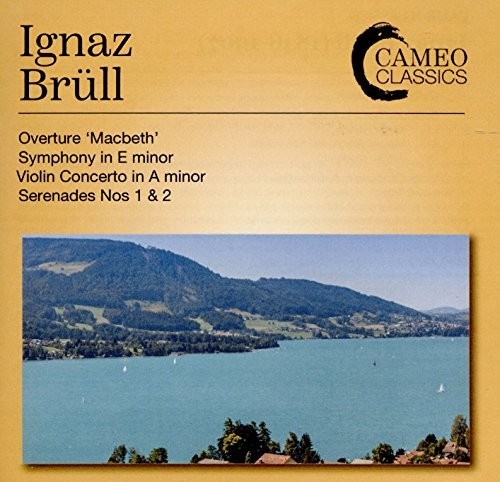Show results for
Deals
- 4K Ultra HD Sale
- 50s Films Sale
- Action Sale
- Alternative Rock Sale
- Anime sale
- Award Winners Sale
- Bear Family Sale
- Blu ray Sale
- Blues on Sale
- British Sale
- Christmas in July
- Classical Music Sale
- Comedy Music Sale
- Comedy Sale
- Country Sale
- Criterion Sale
- Electronic Music sale
- Folk Music Sale
- Horror Sci fi Sale
- Kids and Family Sale
- Metal Sale
- Music Video Sale
- Musicals on Sale
- Mystery Sale
- Naxos Label Sale
- Page to Screen Sale
- Paramount Sale
- Rap and Hip Hop Sale
- Reggae Sale
- Rock
- Rock and Pop Sale
- Rock Legends
- Soul Music Sale
- TV Sale
- Vinyl on Sale
- War Films and Westerns on Sale

MacBeth Overture
- (2 Pack)
- Format: CD
- Release Date: 7/6/2018

MacBeth Overture
- (2 Pack)
- Format: CD
- Release Date: 7/6/2018
- Label: Cameo Classics
- Number of Discs: 2
- UPC: 5020926910325
- Item #: 2059734X
- Genre: Classical
- Release Date: 7/6/2018

Product Notes
Ignaz Brull was born on November 7, 1846 in the town of Prossnitz in Moravia. In 1850, his family moved to Vienna. His parents were both very musical and soon realized that the young Ignaz had great musical skills. Brull's mother encouraged him by giving him his first piano lessons, but it was evident that he required more professional tuition, and he became a pupil of Professor Julius Epstein. Later he would study under Anton Rufinatscha and then Otto Dessoff. By the age of 14 he had composed his first piano concerto. Being based in Vienna had many advantages, the most apparent being the contact with so many prominent and influential composers, performers and conductors. Brull and Johannes Brahms became firm friends, a friendship which lasted until Brahms' death. Even Brahms' orchestral works, including the symphonies, were first played by Brahms and Brull on two pianos for friends and publishers. Brull wrote over 100 works for solo piano, many orchestral and chamber works and numerous operas. Sadly, nearly all his works have been ignored by the music establishment for more than a century, and the public have been denied access to Brull's qualities which were so evident to Brahms. Even his close friendship with Brahms could not save him from the anti-Semitism being fuelled by Wagner and Liszt during the 19th century. Hitler idolized Wagner, and he ordered that music scores of Jewish composers be found and burnt. Fortunately for us, many of them were well hidden. Brull deserves perhaps to be positioned alongside his friends Mahler and Schumann, and the closest of all, Johannes Brahms.

